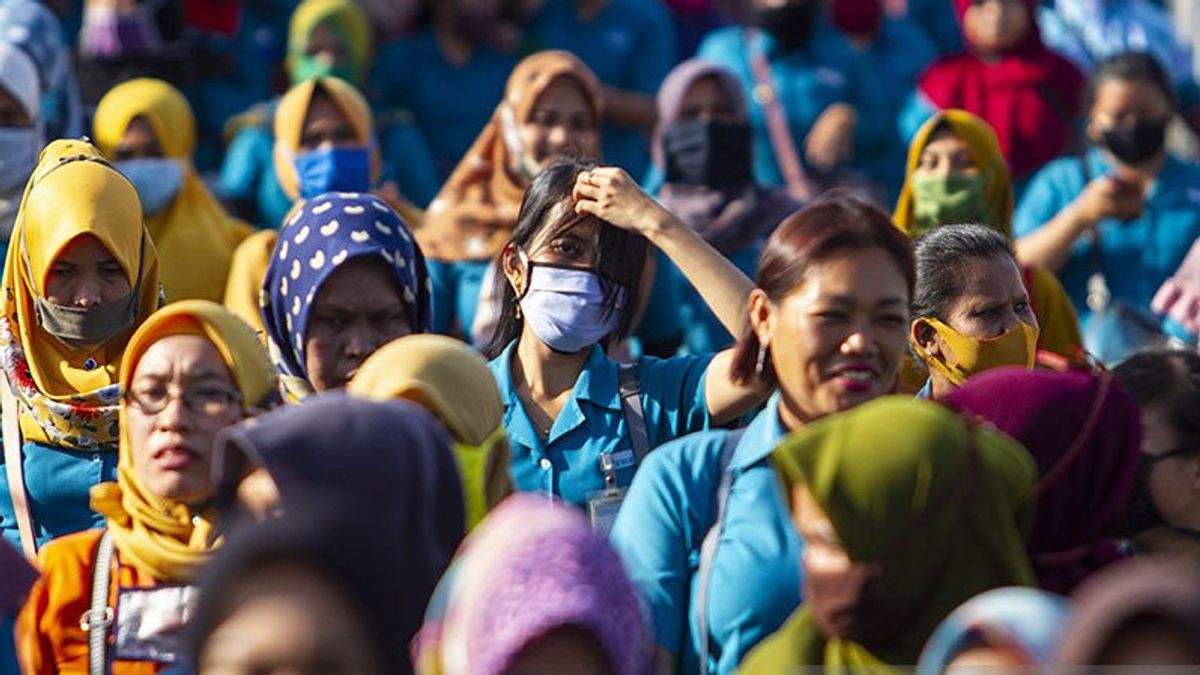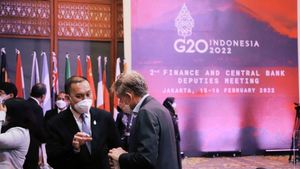JAKARTA - Member of House of Representative of Indonesia Republic Commission XI, Kamrussamad, expressed his concern for the condition of the national economy which is currently facing new challenges after going through the COVID-19 pandemic in the past two years.
According to him, Indonesia is in a situation that is quite vulnerable to being hit by an economic recession. For this reason, Kamrussamad asked the Minister of Finance, Sri Mulyani, to properly maintain the stability of the national economy amidst the threat of slowing growth.
“We remind you not to underestimate the threat of an economic recession at this time. Although the structure and fundamentals of the Indonesian economy are said to be much better than what happened in Sri Lanka, it does not mean that it is free from these threats," he said in a press statement quoted by the editorial team on Saturday, July 16.
Kamrussamad added that the Sri Lankan crisis was triggered by the debt crisis which reached 117 percent of the gross domestic product (GDP). Meanwhile, Indonesia is known to have a debt to GDP ratio of 38 percent.
“Although it is better, there are conditions where our rupiah exchange rate weakens and this can make the ratio increase. Moreover, the IMF predicts that the global economy will be even more bleak", he said.
SEE ALSO:
Another thing that was revealed by the Gerindra legislator was a Bloomberg survey which included Indonesia in the list of 15 countries most likely to be hit by a recession. Meanwhile, these countries are Sri Lanka, New Zealand, South Korea, Japan, China, Hong Kong, Australia, Taiwan, Pakistan, Malaysia, Vietnam, Thailand, Philippines, Indonesia, and India.
“Indonesia's current economic indicators are indeed better. But the trajectory is similar to the trajectory of countries experiencing a recession", he said.
Kamrussamad also said that positive economic growth is not a guarantee for Indonesia to be free from threats. The reason is, in the 1996 period, Indonesia's economic growth was very high at the level of 8 percent, until the great crisis hit in 1997.
"Currently, our foreign exchange reserves have decreased by around 12 billion US dollars since September 2021, and have continued to decrease in the last 4 months. Especially with the addition of the trend of capital outflows due to the increase in the Fed's interest rates", he said.
"Not to mention the trend of commodity prices starting to decline now. This has the potential to accelerate the currency crisis", closed Kamrussamad.
The English, Chinese, Japanese, Arabic, and French versions are automatically generated by the AI. So there may still be inaccuracies in translating, please always see Indonesian as our main language. (system supported by DigitalSiber.id)
















